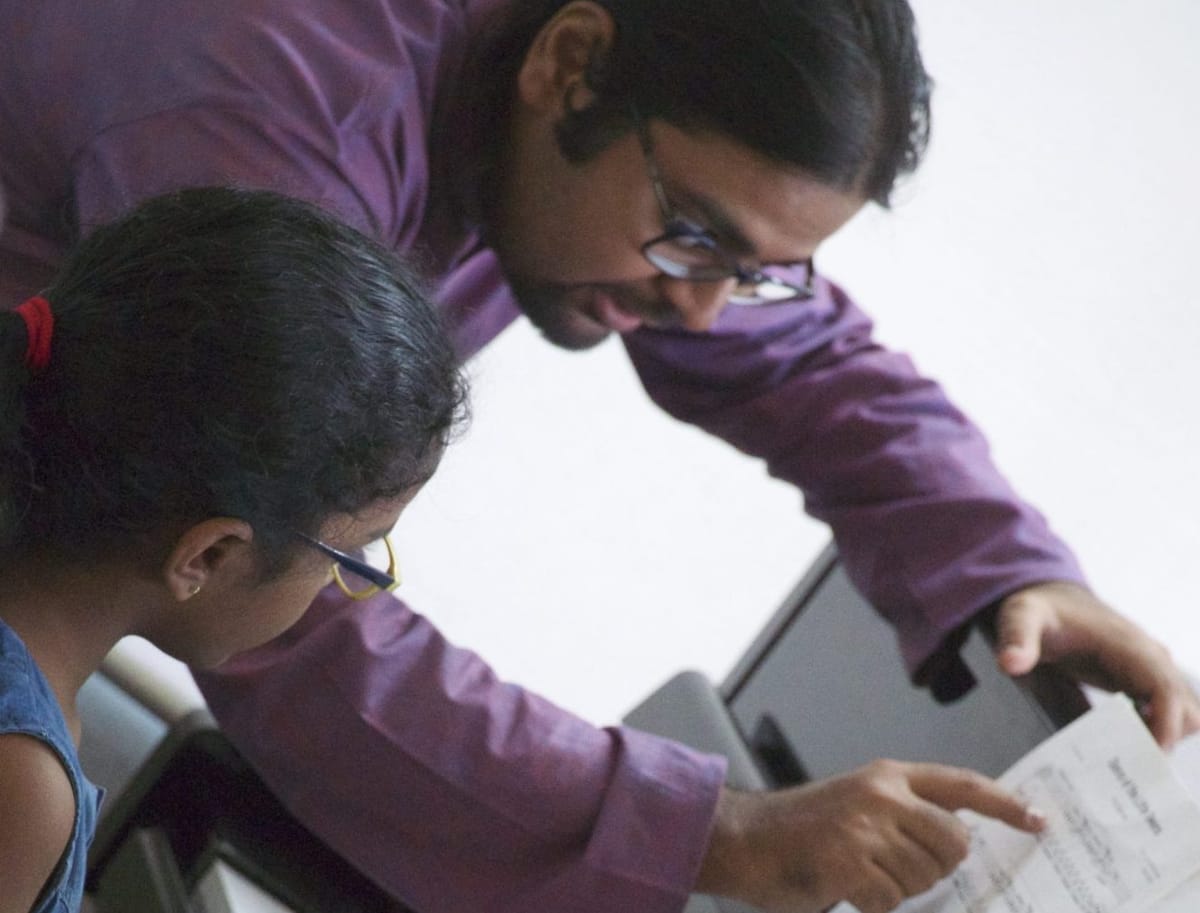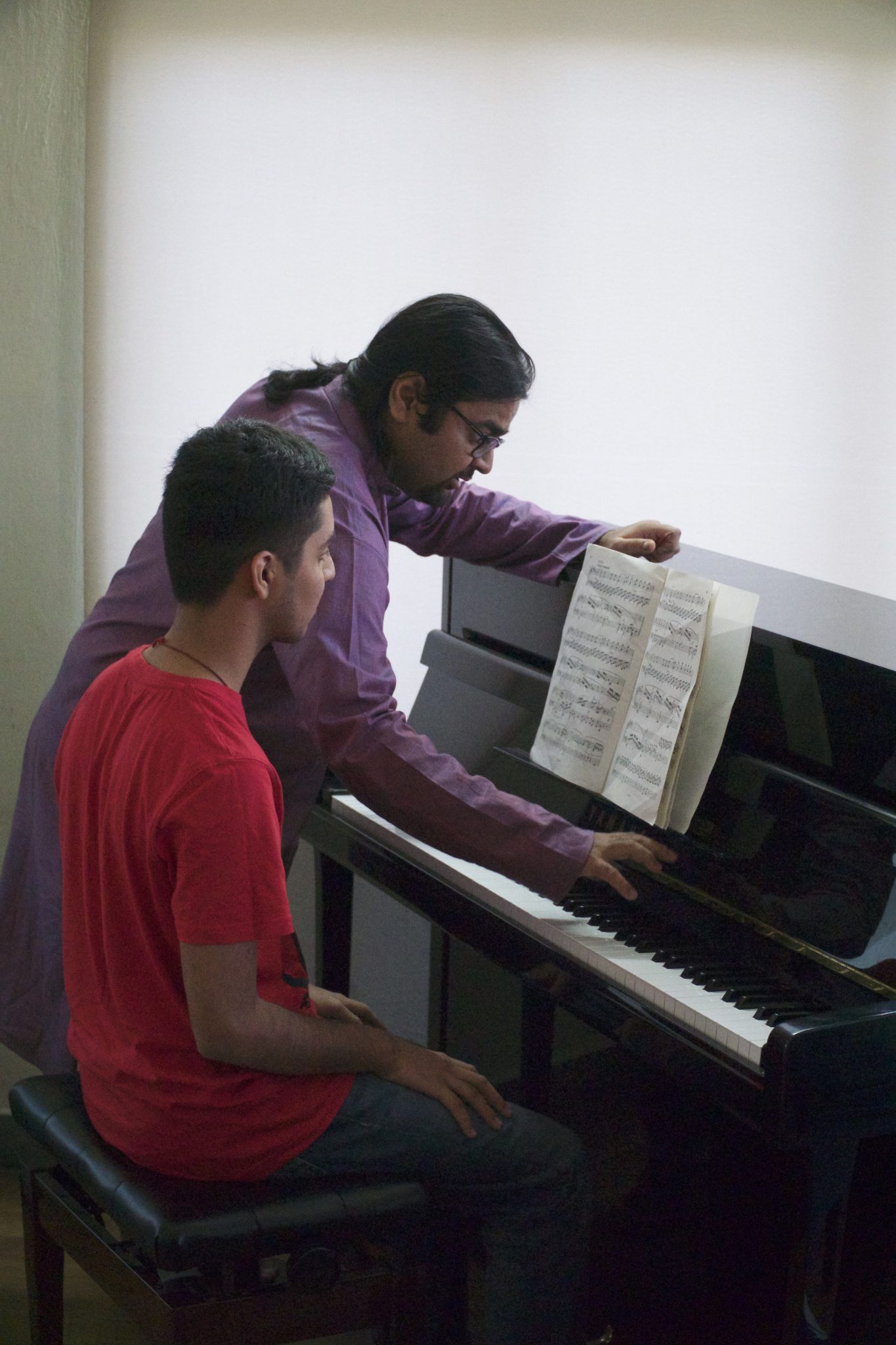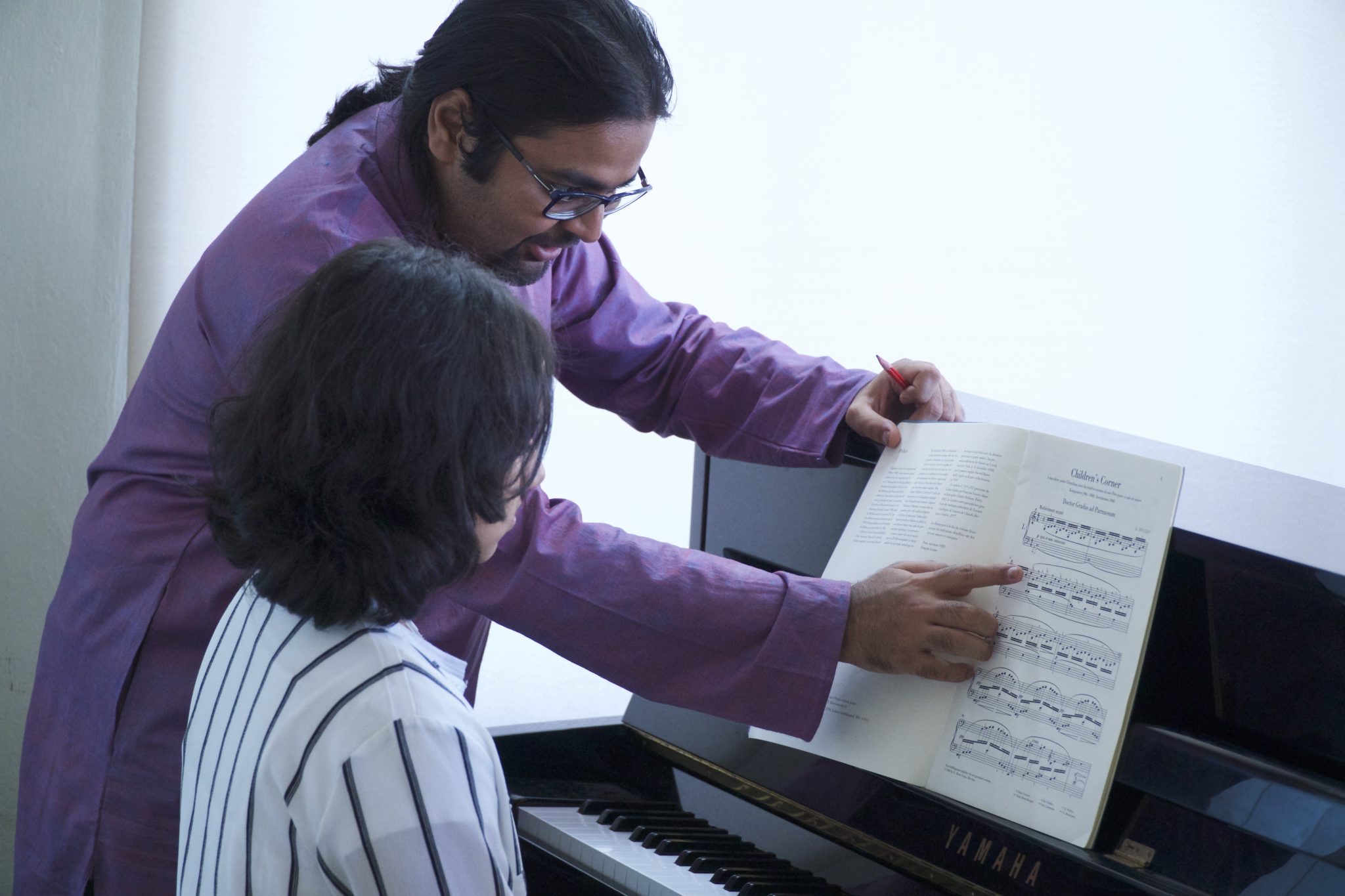Piano, Teaching and the Future of Classical Music – Conversations with Shantanu Patel

There is elegance and grace in playing the grand piano compared to the later arrived instruments such as the keyboard which is more of a digital manufacture. Grand piano speaks of grandeur and style; not to forget the tremendous hard work put into it to master such an instrument. Shantanu Patel, a gifted piano player and teacher is somewhat laid back at conversations but quite knowledgeable to talk with. He teamed up with an excellent musician Ankna Arockiam for an exclusive workshop on voice and piano and also performed with her at Musée Musical, Hyderabad on 2nd December 2017. Here is an interesting conversation with him:
Navya Chittarvu: Could you please share a bit about your background in Music?
Shantanu Patel: I used to learn Indian classical music and play the harmonium at the age of 7. However, my interest in Music was reduced because I wasn’t able to go further. At the age of 12, I started pursuing Western classical theory and keyboard. In the mean time, I was also playing Bollywood music such as chord progressions and unplugged versions of songs.
NC: When did you get motivated to start learning the piano?
SP: During my +2 studies, my music class got a piano and I was somehow magnetically drawn to it. Though I was playing Bollywood numbers on it, I wanted to learn classical piano formally. That was when I got the motivation to pursue this further. Then I came to know about AR Rahman’s KM Conservatory and pursued my degree course there. I felt that the best way was to convey my ideologies and communicate with people through performance.
NC: How was your experience studying at the KM Music Conservatory?
SP: I owe a lot to my piano teacher Adam Grieg from KM who always made an extra effort to teach me more about the piano after the regular class hours as well. In fact, many of the nuances of music was learnt from him over a coffee or a casual drink! It is rare to find such teachers who strive to make students excel in their skill. Till then, I only knew Mozart and Beethoven. KM’s coursework includes not just music performances but also history, compositions, analysis, music production, musicianship and composers. It has definitely taken my learning horizon to newer levels.
NC: Biggest influences in music?
SP: I find French composers quite intriguing and romantic composers like Chopin brilliant!
NC: When was your first debut piano performance?
SP: During my second year of KM in 2012, I gave my first piano performance. I also performed in my old music school back in Ahmedabad which was special.
NC: What are the most important aspects that a piano player should be aware of?
SP: Apart from being technically sound and getting the notes right, a pianist should have a thorough understanding of their own body and anatomy. Awareness about how fingers function might look too far-fetched but it is greatly important. Unfortunately, many teachers focus on the instructional aspects of piano teaching and getting good marks in their respective grades but there is more than which meets the eye for a becoming an accomplished piano performer. I strive to make people aware about these aspects which are not commonly discussed. Also, the main key to perform any instrument properly is the musicality and the sound that you create. Musicality lies above everything for sure.

NC: How do you think the teacher should work on becoming better instructors?
SP: Well, just like how science gets updated every now and then, the same happens to art. Teachers need to update themselves and add new methods of teaching to suit the student interest and prowess. There is no point in sticking to old school methods which may not yield fruitful results in this present day. As for me, a teacher needs to be encouraging, well informed and also try to keep the student greatly aware of their anatomy and strengths of playing.
NC: Do you feel piano learning should be started earlier in life?
SP: Learning a musical instrument like the piano earlier in life is definitely beneficial because it will tone the muscles in the right path. At a formative age, skill learning is quite faster and will get ingrained into one’s mind more easily. However, with the right determination and the zeal to learn, it’s never too late to start any instrument!
NC: How was your experience in conducting workshop at Hyderabad?
SP: It has been brilliant. Hyderabad has got great enthusiasm for classical music which is quite encouraging. The students were open minded and willing to learn more about the nuances in playing piano. More such interactive sessions will surely bring budding artists into the limelight.

NC: What are your tips for students to learn piano and keyboard?
SP: I will keep it simple.
• Get a good teacher (which is mandatory)
• Don’t just confine to learning the artistic aspects by reading the score. I would suggest learning more about the history, makings of the instrument and also understanding more about the background.
• There is no need to practice hours together without focus. Even a solid two hours practice with 100% focus is more beneficial. Hence, I will always opt for focused learning over blind mastery.
NC: What is your take on improvisation in classical music?
SP: Improvisation is quite subjective and I personally feel it adds a unique value to an already popular composition. However, it needs to be done with care in such a way that it doesn’t tamper with the original brilliance. Though some classical musicians might disapprove of too much of improvisation, I find it to be challenging and intriguing.






